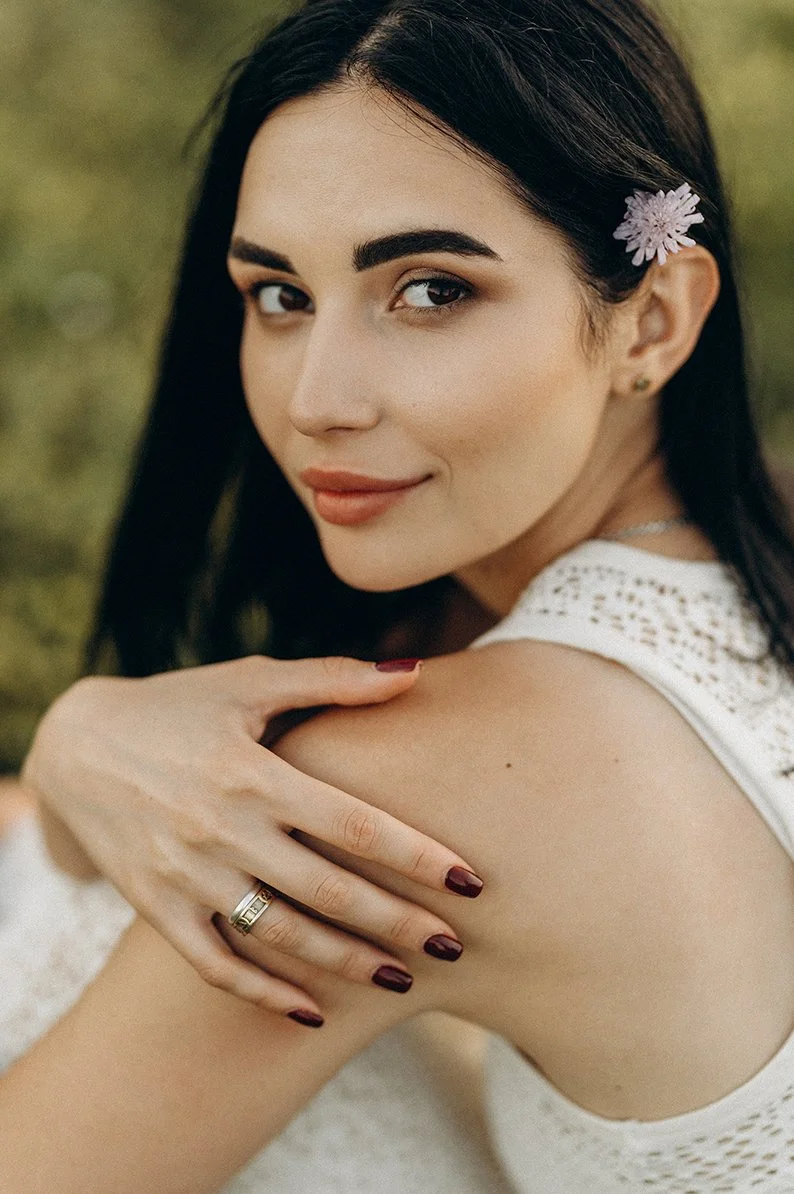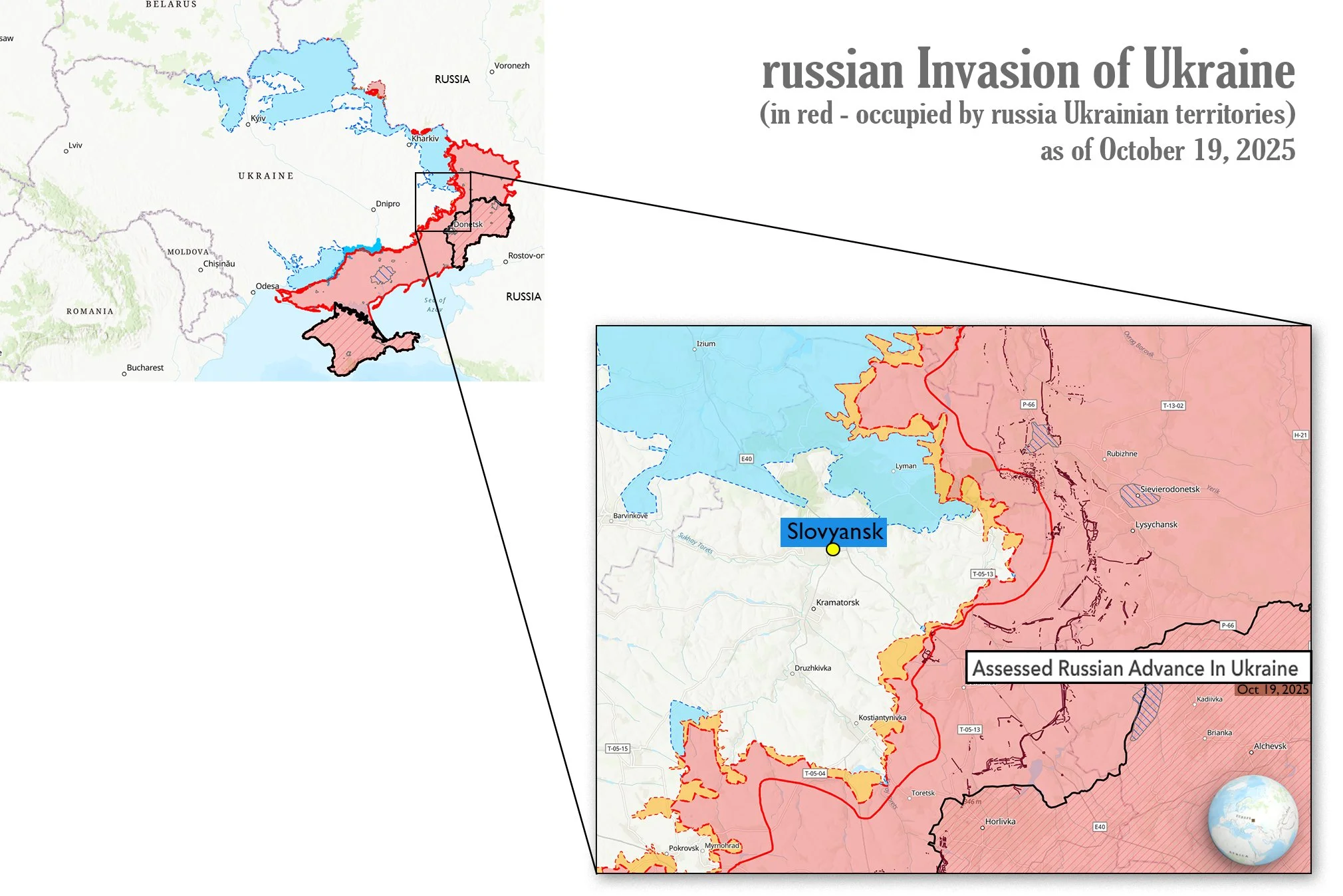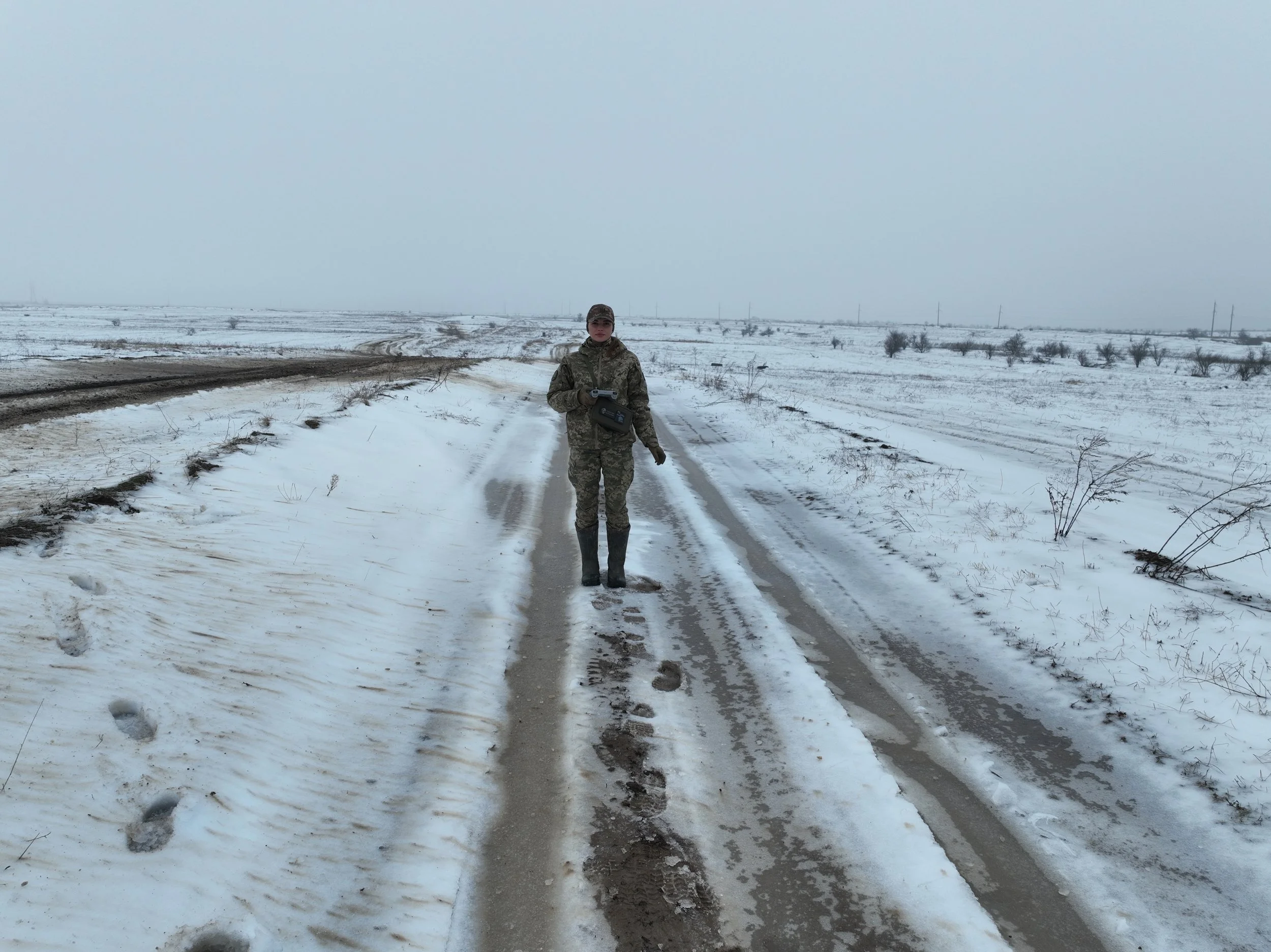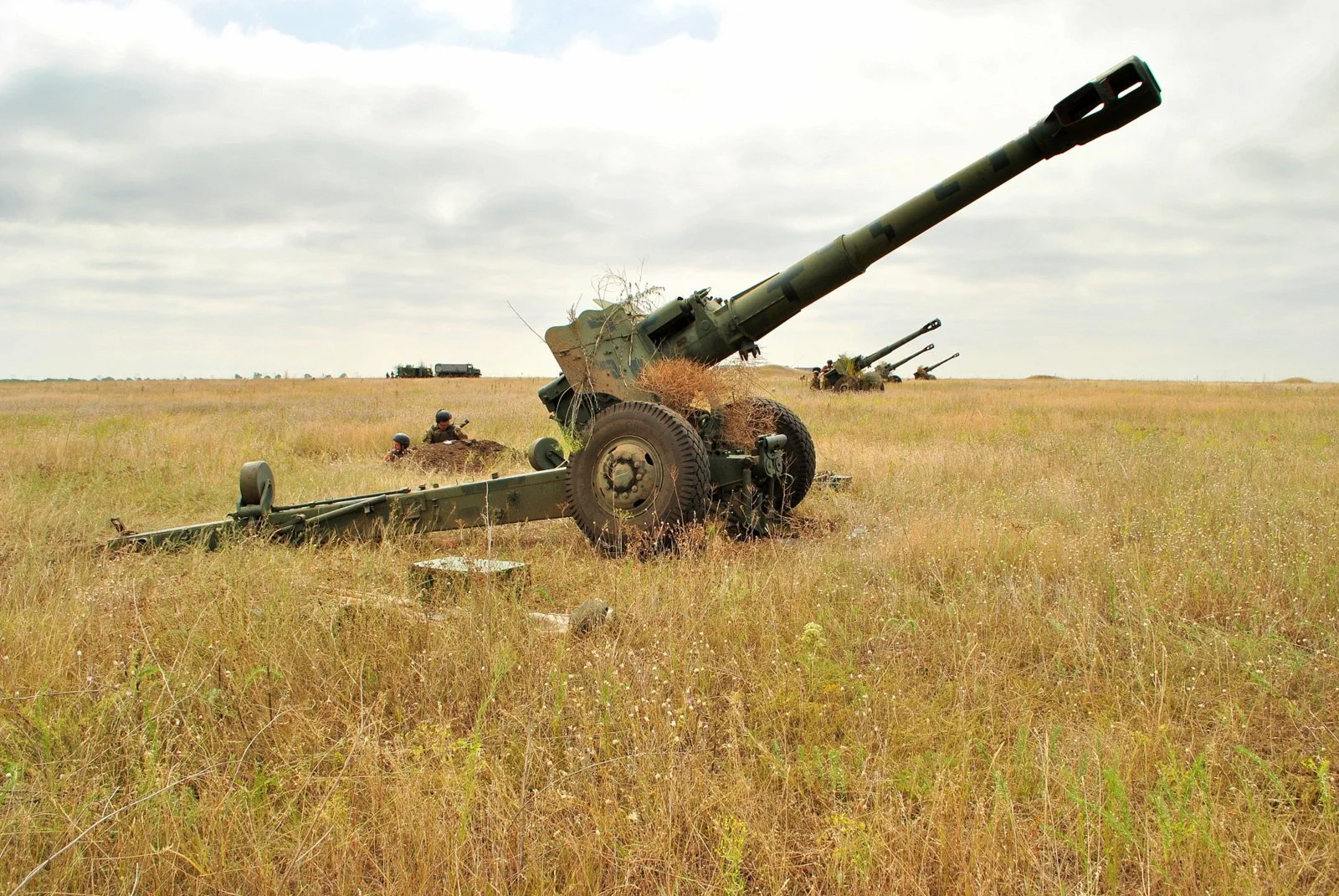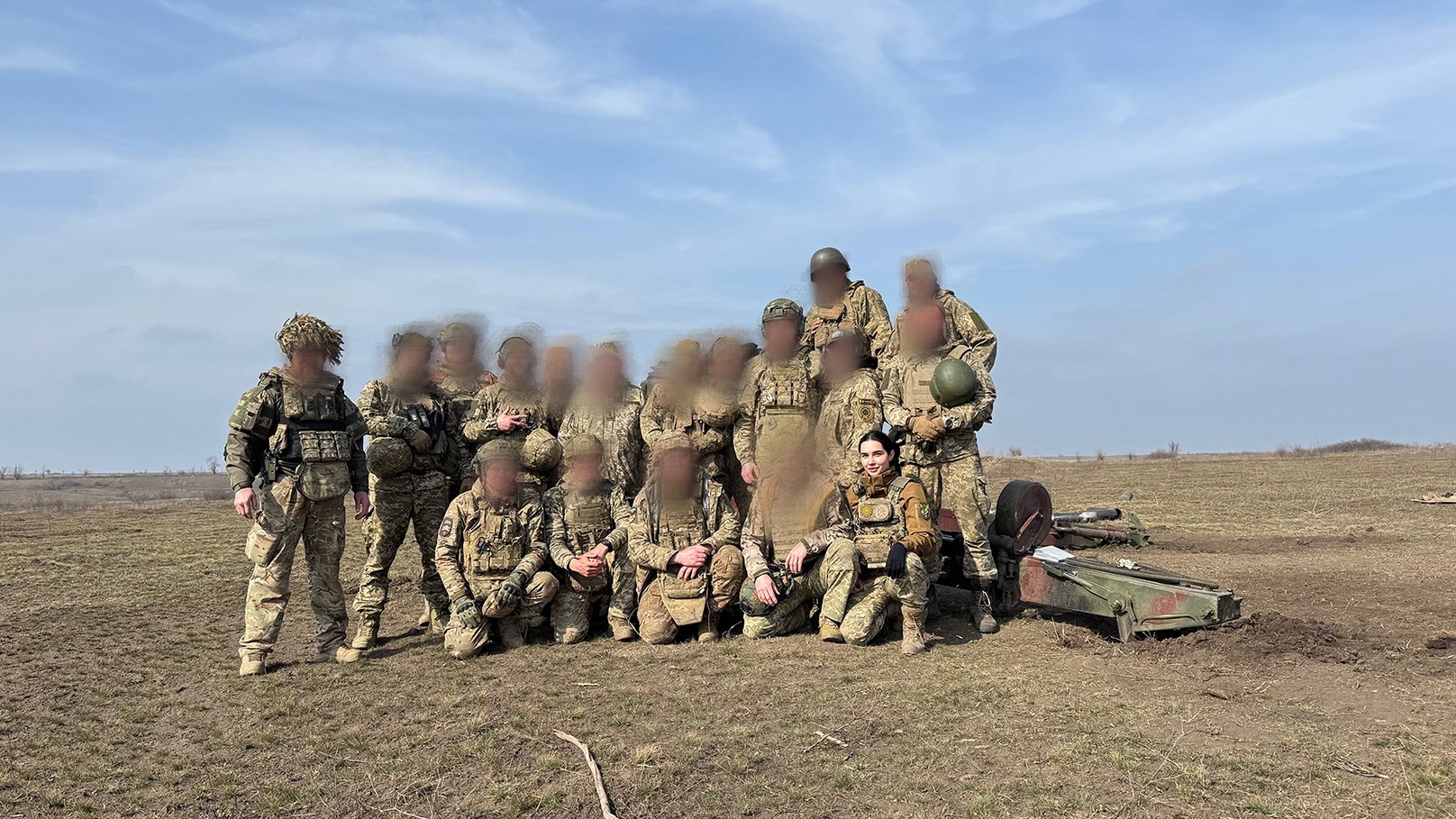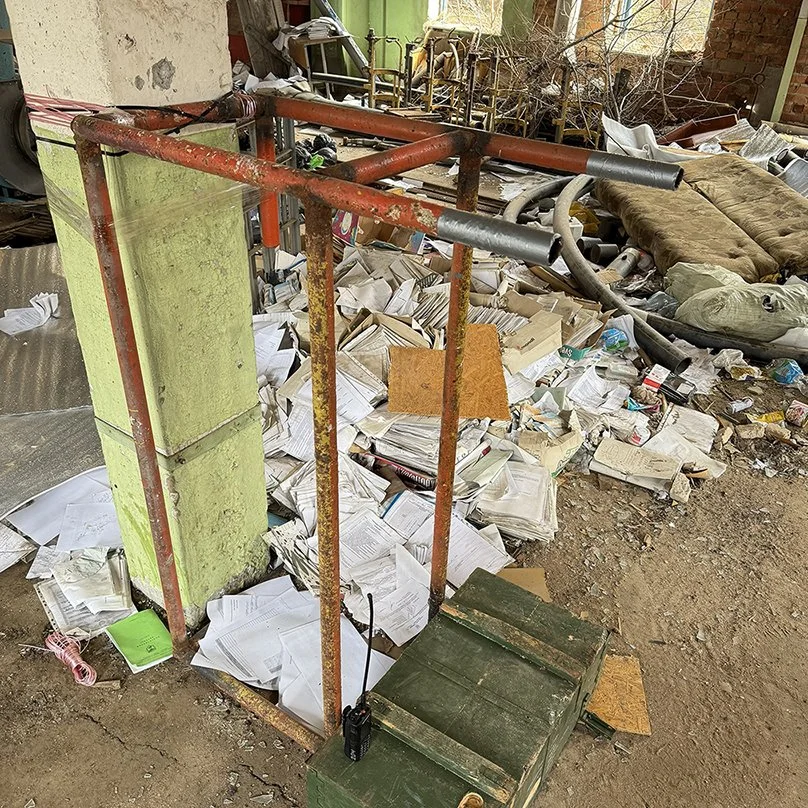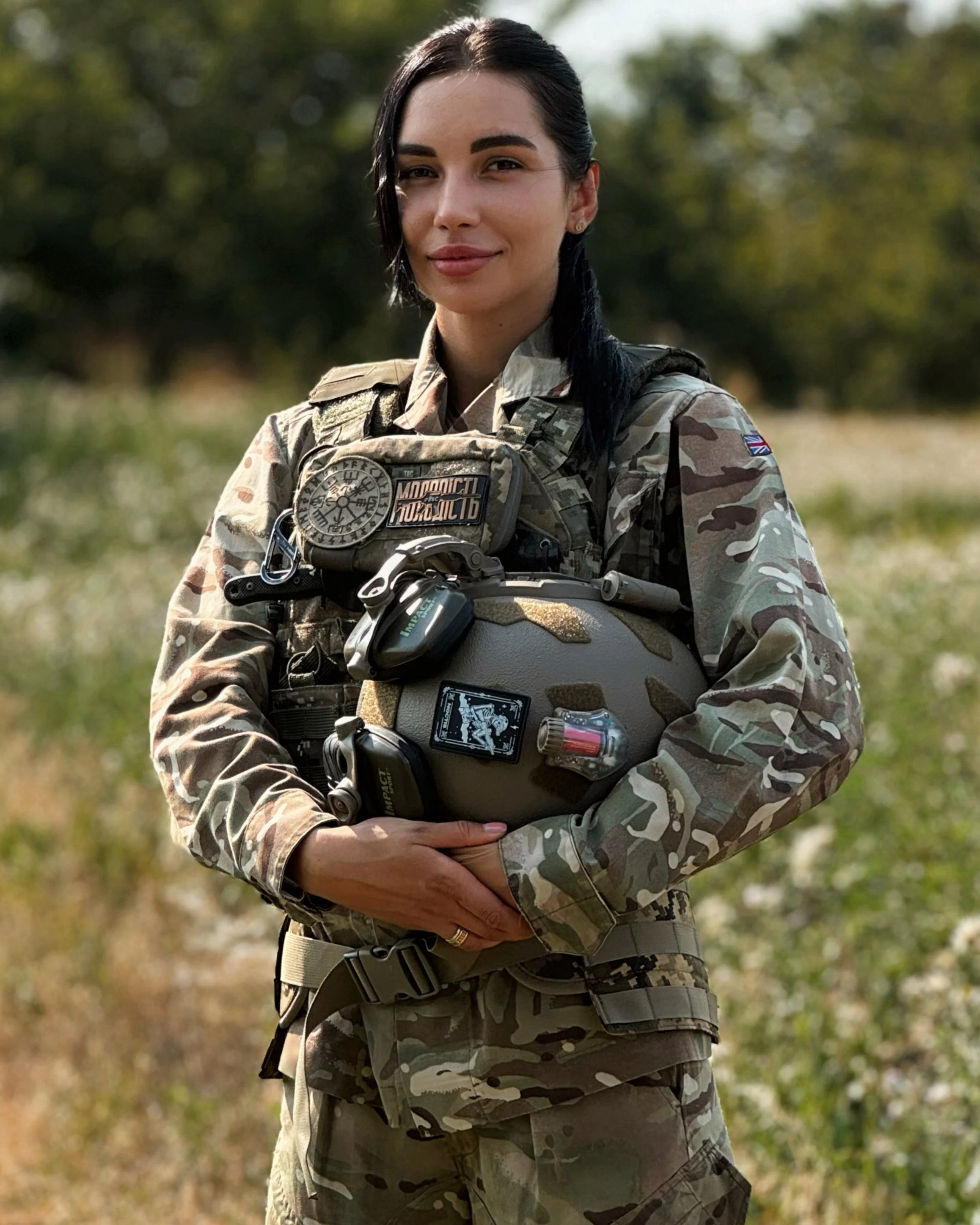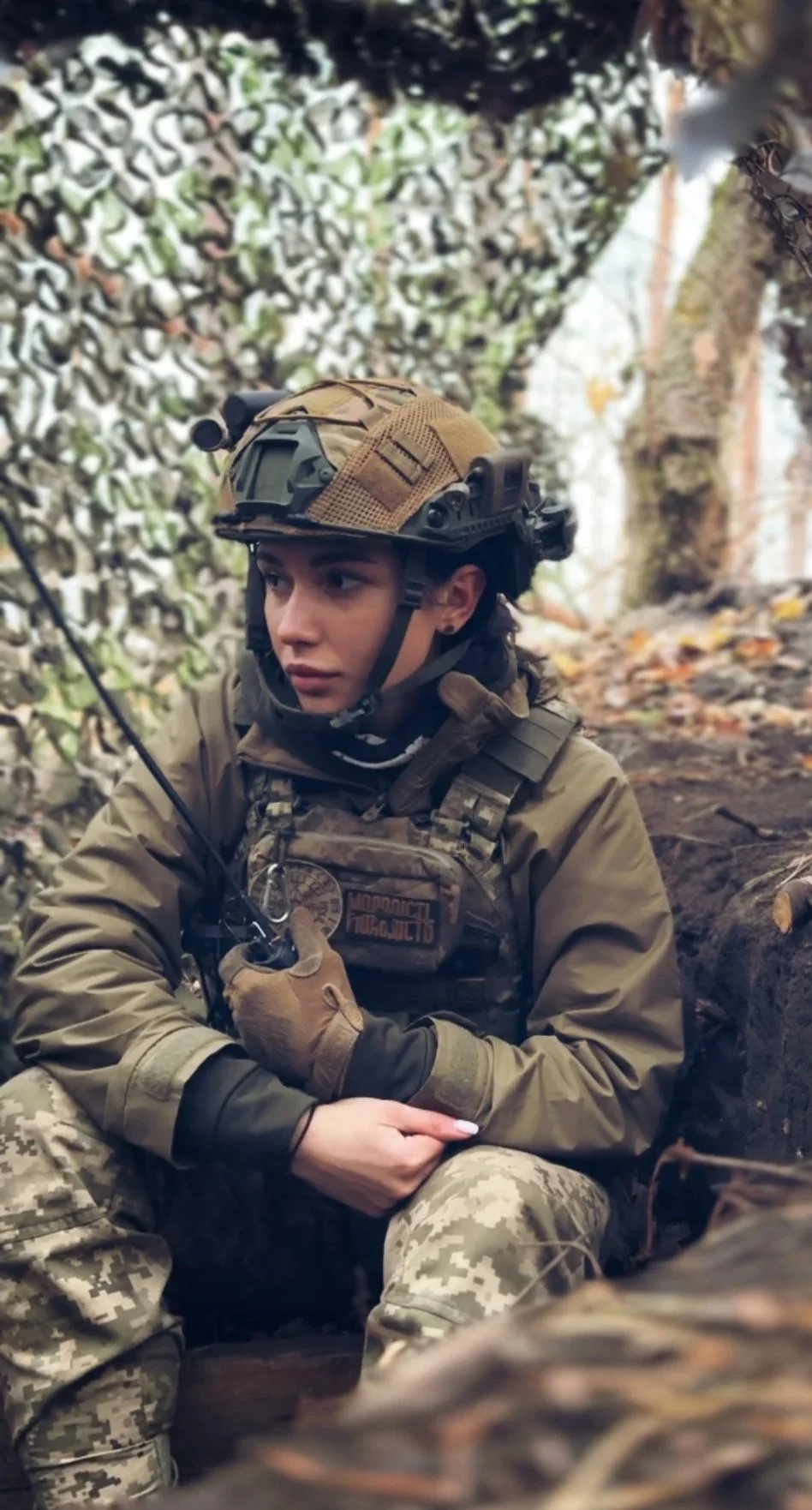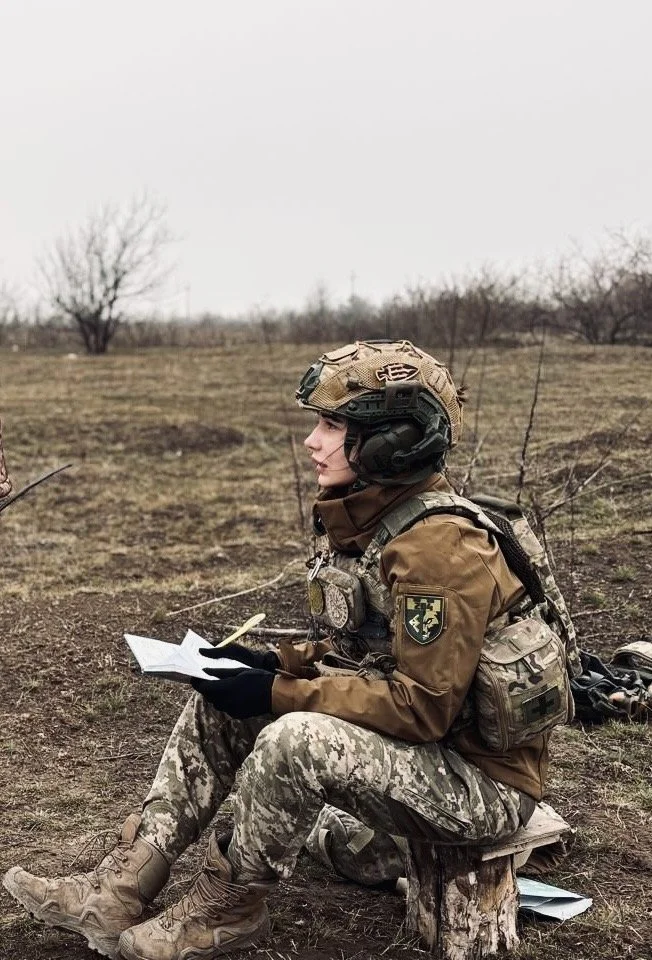THIS INSIDE UKRAINE STORY IS FROM AN UNDISCLOSED LOCATION ON THE FRONT.
* All images and answers in the feature were provided by the WOW Woman, unless otherwise specified.
INSIDE UKRAINE SERIES: A SNAPSHOT, A DAY-IN-THE-LIFE, A GLIMPSE OF WHAT IT’S LIKE TO LIVE, RESIST, SURVIVE AND PERSEVERE IN A NATION UNDER ATTACK.
GLORY TO THE UKRAINIAN WOW WOMEN, FOR SUPPORTING THEIR COUNTRY AND BRINGING UKRAINE CLOSER TO VICTORY.
Maria Berko is one of those rare people who steps forward when her country is attacked. When the barbaric full-scale russian invasion began on February 24, 2022, and no one knew which parts of Ukraine might fall next, Maria did not hesitate. She went to enlist and defend her people. To do that, as a woman and as a person, in the midst of such fear and uncertainty, takes extraordinary courage.
Maria is a hero. Throughout our conversations and as I read her answers, I found her calm, grounded, and incredibly brave. She inspires me with her quiet strength. From the first day of the invasion, she understood exactly what kind of enemy Ukraine was facing. russian soldiers have shown the world who they are through acts of cruelty, torture, and violence against civilians. Every woman in Ukraine knows the risks, yet Maria chose to run toward the fire, not away from it. To this day, nearly four years later, Maria faces russians head-on; she continues to defend Ukraine and her people.
I feel a deep urgency to share stories like hers. I rush to bring the voices of defenders forward because they are still out there, in the dugouts, risking their lives for all of us every single day. Maria’s story deserves to be heard now, while she and others continue to stand between freedom, democracy and barbarism, destruction.
- Olga Shmaidenko, Founder of WOW Woman
Soldier, Artillerist, Armed Forces of Ukraine, Front Line
1. Name.
Maria Berko. Call sign “Athena”
2. Where were you born and where do you live now?
I was born in Slovyansk, Donetsk region. I moved to Kyiv to get a higher education and start my life there.
3. What did you study and what is your current profession?
I have two bachelor's degrees, one of which I completed while already serving in the military:
Bachelor's degree in Woodworking and Furniture Technology
Bachelor's degree in International Relations, Public Communications, and Regional Studies.
I am currently serving in the Armed Forces of Ukraine, as an artillerist.
Photos above: (1) firing at an enemy from a rocket-propelled grenade launcher, (2) Military photo shoot, (3) Work moments, (4) Kostiantynivka, Donetsk region, 2023. На знімках: (1) Постріл з РПГ, (2) Військова фотосесія, (3) Робочі моменти, (4) Костянтинівка, Донецька обл 2023р
I am the commander of the T-12 (100 mm anti-tank gun T-12) and D-20 (152 mm towed gun-howitzer) guns. As a leader of the small crew that operates above weapons my roles are:
aiming and firing commands,
coordinating the team’s actions,
ensuring safety and accuracy,
reporting to higher command.
I manage combat operations, coordinate the actions of the unit, and so on.
Photos above: (1) Aiming the artillery, (2) Zaporizhzhia region, 2025. На знімках: (1) Наведення гармати, (2) Запорізька обл 2025р
4. What was a typical day like before the full-scale invasion, and how has your life changed since russian invasion of Ukraine? What is your typical day like now (if that is even possible)?
My civilian life was extremely busy each and every day. In addition to studying at two academic institutions, I was building a career in Thai boxing, to which I devoted more than 10 years. This involved daily training sessions lasting 2-3 hours, and during preparation for competitions, 2-3 training sessions per day. At the same time, I had various side jobs to earn money. I played the piano. Of course, I did all the necessary household work, because I started living on my own before I reached adulthood. My day started at 6 a.m., and I'd get home around 10 p.m. I didn't even know what it was like to have a day off. I enjoyed an incredibly active and interesting life, even though it wasn't easy.
In the army (now), there's no such thing as a typical day. Unlike civilian life, where I was able to plan my week in advance and follow the schedule, here I l learned to be flexible, to accept that any plan may not be implemented, that planning anything ahead is extremely difficult.
At the front line, my day is completely understood. I have my duties and am ready at any moment to carry out combat fire missions.
At the deployment point (the place to which I return from the front line position), there is also a certain range of tasks that is determined by the commander. Part of the day is spent on everyday chores, like washing clothes. We live in the pre-frontline zone where there is no water. We have to fetch water from a well, wait in a line, and so on; that's the case most of the time. The conditions to which we return from our front line posts are terrible because the enemy tries to destroy them daily. It feels like civilization is disappearing.
Nevertheless, I find time for self-development and maintaining my physical strength. I have several online teachers. I study specialized military English and other subjects.
To briefly summarize the difference between life before signing the contract, it is a conscious choice to give up a large part of personal freedom and control over my time. It is about flexibility and accepting reality as it is: cold, harsh, demanding extreme strength of body and spirit. The main thing is not to lose yourself, but to gain, despite any difficulties.
5. Where were you and how did you find out/feel the beginning of the russian offensive? What were the first days and weeks of the invasion and bombings like?
On February 23, 2022, I have just returned from a sports competition in Turkey. On the way to Ukraine, we all knew that difficult times were ahead. After the trip, I went to bed and woke up in the middle of the night to a call from a loved one, “Wake up, it's started.” I packed a small bag of things, took out my military uniform, which I had from searching for the bodies of those who died in World War I and World War II (When I lived in Sloviansk, I joined the search efforts of the group Platsdarm whose goal was to find bodies and give them a proper burial, preserve their memory, and even find their relatives. To bring the boys home). My friends and I agreed on a place where we would meet and, once we met, we would decide on our next steps.
On February 26, 2022 (four days after the full-scale attack started), I was building a checkpoint in the village of Hrebinky with volunteers and taking turns on duty there. Eventually, I returned to Kyiv and continued my volunteer work there. The first few days were extremely difficult but also very familiar since I had already seen it all in 2014 when my hometown Slovyansk was under russian occupation.
6. What steps did you imagine before deciding to join the Armed Forces? What steps were there in reality and what needed to be done to enlist, complete training and get used to working with brigades and soldiers?
I was unable to join the army on a contract basis in the early days of 2022 russian invasion. The moral realization of this was difficult for me. Nevertheless, I had to accept it and take necessary next steps. During this time, I set out to independently acquire all the necessary military skills, training and continued learning on a daily basis. I underwent voluntary training at the Ukrainian Legion, spent my salary on shooting ranges, developed my shooting skills, completed several levels of tactical medicine training, and so on.
At the local military enlistment and support office (responsible for registering, drafting, and mobilizing citizens into the Armed Forces of Ukraine) I passed all stages very quickly. The Military Medical Commission (which is responsible for medical clearing of an applicant) clearing took me 1.5 days, because in a queue of ~50 people I was the only volunteer and was allowed to move through the queue first.
In other words, I was well aware that I had to prepare myself very thoroughly in order to become a worthy and strong combat unit. All these skills and my contribution helped me immensely during my Basic General Military Training (which is mandatory after signing a contract) and my service in general. I was one of the best in the training group and practically didn't learn anything new while there. I just humbly waited for the end of the course and the moment when I would be in combat. After taking the oath, I got in the car and immediately drove to Donetsk region. That's where my battles for the village of Klishchiivka, in the Bakhmut region, began.
No one will teach you how to get used to working with soldiers and brigades. That must come from your own gained experience out here. All you can do is mentally prepare yourself that this path will not be easy.
Above photos: (1) Donetsk region, Velyka Novosilka, 2024, (2) An enemy drone hit 10 metres away from me and did not explode. I call days like this another birthday, (3) We made a barricade at our position so that we could stay in shape. Surrounded by rubbish and a ruined building, (4) Leaving the trench, ready for combat. Orikhiv, 2025. На знімках: (1) Донецька обл, Велика Новосілка 2024р, (2) Ворожий дрон влучив в 10 метрах від мене і не розірвався. Називаю такі дні ще одним Днем Народженням, (3) Зробили на позиції брус’я, щоб мати можливість підтримувати форму. Навколо смітник, розбита будівля, (4) Вихід з бландажу, готовність до виконання вогневої роботи. м.Оріхів, 2025р.
7. What do you think are your strengths and superpowers?
My life has been difficult since childhood. I had to grow up fighting for my truth, for myself. I still wonder how, despite all the shakles, I managed to not break and grow into a strong woman.
I am a fighter for justice, I am toughened by practicing difficult sport, I am disciplined and I have one important goal - to live this life with dignity. I have no superpowers.
8. What is it like to work all day mainly with men? Do you ever encounter women who also serve?
Images above: (1) Velyka Novosilka, Donetsk region, with my brother-in-arms in 2024, (2) My first dugout, (3) Working at the position at the front in 2025, (4) First combat mission, Klishchiivka settlement, Donetsk region. На знімках: (1) Велика Новосілка, Донецька обл, з побратимом 2024р, (2) Мій перший бліндаж, (3) Робота на позиції 2025р, (4) Перший бойовий виїзд, населений пункт Кліщіївка, Донецька обл.
Working all day with men feels completely normal. We are all combat units here, regardless of gender. I do all the work on an equal footing with men, without any exceptions. I’m the gun commander, the crew leader responsible for operating the anti-tank T-12 or howitzer artillery guns.
As for women, yes, of course there are some. I have never spent a combat shift side by side with a woman in a front line combat position. In my unit, I have two women with whom we have a common working routine. That is, we share a common mission from time to time.
I respect and am proud of all the servicewomen I know.
9. How do you take care of yourself? Is it even possible to remain morally stable during the war? What helps you pull yourself together?
You know, by the third year of service, I realized that I had partly let that aspect of self-care slip away. I definitely can’t be an example here. I completely immersed myself in the war, closing my eyes to the moments when I wanted to say, “I’m so tired.” I didn’t allow myself, even for a second, to show fatigue or to admit it, even to myself. I’m a perfectionist.
Only now am I learning how to take care of myself. I’ve come to understand how important that is through my own experience. It’s crucial not to lose the boundary between the war and your own life. The best solution is to find balance.
What helps me pull myself together is the awareness that this world needs only strong people. And at the same time — the understanding that no one will take care of you except yourself.
Images above: (1) in combat, (2) blood of the wounded brother-in-arms splattered on a child’s drawing, (3) found a bunny in the field, (4) enjoying a moment in nature in the pre-frontal zone. На знімках: (1) Робота на позиції, (2) Кров пораненого побратима на малюнку дитини, (3) В полі знайшла) 2025р. (4) Насолода природою в прифроновій зоні.
10. Where do you think you draw your courage, confidence and determination from? What do you think gave you this sense of confidence? Are there moments when you wake up and want to scream and run?
I wasn't born brave, and unfortunately, I wasn't taught confidence as a child. I gained all of this through my life experiences and hard work. So, I draw on this by looking back on the path I've already travelled and continue to reinforce these strong qualities through my actions and life challenges.
I was raised in a sports club under the motto ‘Never give up,’ so I never give up.
No, I have never had the urge to wake up, scream and run away.
Photos above: (1) Velyka Novosilka village, Donetsk region, 2024, enemy shelling of our positions, (2) Captured this shot at our combat position, (3) A dog came to hide from rocket fire at our position, (4) The enemy destroyed our base with a KAB bomb (a guided aerial bomb, a large, extremely destructive weapon dropped from aircraft and guided to its target using satellite or laser systems). There were "300s" in our crew (wounded soldiers). На знімках: (1) Велика Новосілка, Донецька обл 2024р, обстріл ворогом наших позицій, (2) Зловила кадр на позиції, (3) Пес прийшов ховатися від ракетного обстрілу позиції, (4) Ворог знищів наш дім КАБом, були 300-ті.
11. Do you feel that the war has changed you? How? Were you surprised by how you held on, remained strong, by your country, by your ideas about humanity, by your attitude toward the world? What was your epiphany?
I can't say that the war has changed me. On the contrary, I think it has revealed my true self. When I joined the army, I told myself and my colleagues that it was important not to lose ourselves here. After all, here we don't choose our surroundings, we don't decide with whom to carry out combat missions or with whom to share our day-to-day. We are forced to adapt to each other. However, our environment does shape us and we encounter people who have radically different points of view and values. Yet we have to co-exist with them too. This is what I mean when I say that you have to be able to protect what is inside and not take on other people's norms or ideas which don't feel genuine to your own beliefs.
There is something in me that, unfortunately, has faded away. A sense of unconditional trust in pure intentions of others. Oftentimes others cannot believe that my actions are done with pure intentions as well, they seem to look for a catch.
Overall, both the light and the dark sides of the war are transparent when you're spending your life out here, defending. People show their true colours. And that is actually helpful and valuable.
Although I have gone through many transformations, I have definitely not lost my true self.
12. For those who may not fully comprehend what it means to entrust one's life to fellow soldiers, how would you describe your bond with them?
I was wounded once and my brothers-in-arms saved me. I remember each of their actions. It was truly remarkable.
We have been fighting alongside one another for quite some time now. Together, we build shelters with our bare hands to shield ourselves against the enemy, we stand in firing positions side by side, understanding that at any momet the enemy can target us with several artillery units.
- 2025 -
Photos above: (1) Huliaipole direction, Zaporizhzhia region, 2025. A stop before reaching the combat position, (2) Photo at the position, (3) Stopping before reaching the combat position, my gun crew, (4) Zaporizhzhia region, Orikhove village. На знімках: (1) Гуляйпільський напрямок, Запорізька обл, 2025р. Зупинка перед заїздом на позицію, (2) фото на позиції, (3) Зупинка перед заїздом на вогневу позицію, мій розрахунок, (4) Запорізька обл, Оріхово.
Together, we travel hellish roads from point A to point B. I am sure that during these trips, each of us is thinking what we would do if we are hit and the ways we will help one another. Where this faith comes from, I do not know. I believe in people around me. I know I can rely on them. For we have become true brothers and sisters to each other and not only in arms.
I believe that we judge others through our own perspective, values and behavior. Personally, I will do everything in my power to save someone. But first and foremost, I will do whatever it takes to prepare and ensure that there is no reason to do so in the first place.
13. What would you like the world to know about Ukrainians at this moment in time? About Ukrainian women?
Ukrainians are a people with a deep history, shaped by the intersection of cultures, wars, and the struggle to defend their identity. Our national consciousness stems from a sense of freedom, dignity, and responsibility for the land we live on. When someone sows pain against us, they will reap a storm that will return to them ten times stronger.
Ukrainian women are unmatched by those of any other nation; they create life in the midst of war. Where there is darkness and explosions, they bring light. They stand alongside men inside the inferno of war, not behind but beside them as equals.
14. What place or activity makes you happiest?
I love to travel. To explore the world. Therefore, I am not tied to any particular place or activity. The main thing is not to sit idle. Inactivity ruins me.
15. What will you do first when Ukraine wins? What are your dreams for yourself and your family after the war ends?
I will head to the mountains. I will take a break there and then decide what to do next. I want to believe that when Ukraine wins, the defenders will be welcomed by the civilian population, and that by that time, civilian Ukraine will be ready.
For my family, I dream that they will be able to adapt and return to normal life.
Photos above: (1) Military photo shoot, (2-4) Kyiv 2025, holiday. На знімках: (1) Військова фотосесія, (2-4) Київ 2025, відпустка
16. In your opinion, how do russians as a people differ from Ukrainians? Were we aware of these differences before the full-scale conflict? Were we in denial?
I realised who russians really are in 2014. I encountered the face of russia during the destruction of my hometown, Slovyansk. I was a 13-year-old teenager when my childhood was stolen and destroyed in an instant. They stole something that can never be returned. Now they are stealing my youth. So, russians are thieves, robbers and murderers.
Photos above: (1) Enemy's destruction of a frontline town, where we are returning from our combat positions. The photo shows a killed civilian woman, (2) Improvised bars in a destroyed house, (3, 4) russia's destruction, seen while on the road to our combat position. На знімках: (1) Знищення ворога прифронтового міста, куди повертаємось з позицій. На фото вбита цивільна жінка, (2) Саморобні брус’я, (3, 4) Дорога на позицію
17. What justice do you want for Ukrainians in terms of punishing russia?
I want russia to disappear as a nation, to disappear from the world map. They have lost their right to exist. As long as russia exists, there will be war, death, tragedy, imperialist intentions and darkness.
18. Do you think that people who left Ukraine during the 2022 wave of refugees, or those Ukrainians who have been living abroad for decades, have a certain responsibility to their homeland (in the form of advocacy, donations, fundraising, actions)?
It is difficult for me to judge without knowing the circumstances. I do not condemn women who left with their children. However, there is a caveat. I respect those women who left with their children and continued to raise them as Ukrainians.
As for the others, it's a complicated issue.
For me, some people have no right to return if they have not made any effort to help their country, but simply live their best lives while others pay with their lives for Ukraine. It is not enough to be born Ukrainian; you have to be Ukrainian until your last breath, and the real Ukrainians are here, on the battlefield.
19. Where can others find information about you/your activities? (links to websites, social media pages, etc.)
Instagram: @m_sva_athena
ЦЯ ІСТОРІЯ "INSIDE UKRAINE" - З ПЕРЕДОВОЇ.
* Всі зображення та відповіді у матеріалі були надані WOW Woman
СЕРІЯ INSIDE UKRAINE/ВСЕРЕДИНІ УКРАЇНИ: МОМЕНТАЛЬНИЙ ЗНІМОК, ОДИН ДЕНЬ З ЖИТТЯ, ПОГЛЯД НА ТЕ, ЯК ЦЕ - ЖИТИ, ЧИНИТИ ОПІР, ВИЖИВАТИ І НЕ ЗДАВАТИСЯ В КРАЇНІ, ЯКА ПЕРЕБУВАЄ ПІД ЗАГРОЗОЮ.
СЛАВА УКРАЇНСЬКИМ ВАУ-ЖІНКАМ, ЯКІ ПІДТРИМУЮТЬ СВОЮ КРАЇНУ І НАБЛИЖАЮТЬ УКРАЇНУ ДО ПЕРЕМОГИ.
Марія Берко, одна з тих рідкісних людей, хто встає на захист своєї країни, коли на неї нападають. Коли 24 лютого 2022 року почалося варварське повномасштабне вторгнення росії, і ніхто не знав, які частини України можуть бути захоплені наступними, Марія не вагалася. Вона пішла в армію, щоб захищати свій народ. Щоб зробити це, будучи жінкою і людиною, в умовах такого страху і невизначеності, потрібна надзвичайна мужність.
Марія - героїня. Під час наших розмов і читаючи її відповіді, я побачила, що вона спокійна, врівноважена і неймовірно хоробра. Вона надихає мене своєю тихою силою. З першого дня вторгнення вона точно розуміла, з яким ворогом має справу Україна. російські солдати показали світові, хто вони насправді, своїми жорстокими діями, тортурами і насильством над цивільним населенням. Кожна жінка в Україні знає про ризики, але Марія вирішила бігти назустріч вогню, а не тікати від нього. До цього дня, майже через чотири роки, Марія продовжує протистояти росіянам; вона продовжує захищати Україну та її народ.
Я відчуваю глибоку необхідність поділитися такими історіями, як її. Я поспішаю донести голоси захисників, бо вони все ще там, в окопах, щодня ризикуючи своїм життям заради нас усіх. Історія Марії заслуговує на те, щоб її почули зараз, поки вона та інші продовжують стояти між свободою, демократією та варварством, руйнуванням.
- Ольга Шмайденко, засновниця WOW Woman
Солдат, артилерист, Збройні сили України, передова
1. Імʼя
Марія Берко. Позивний «Афіна»
2. Де ви народилися і де ви зараз живете?
Народилась у м.Словʼянськ, Донецької області. Отримувати вищу освіту і жити переїхала в м.Київ.
3. На кого навчались та за якою професією працюєте зараз?
Я маю дві базові вищі освіти, одну з них закінчувала вже будучи військовою:
Бакалавр «Деревообробні та меблеві технології»
Бакалавр «Міжнародні відносини, суспільні комунікації та регіональні студії»
Зараз я військовослужбовиця армії Збройних Сил України, артилерист. Я командир гармати Т-12 (100-мм протитанкова гармата Т-12) та Д-20 (152-мм буксирувана гармата-гаубиця). Я керую бойовою роботою, координую дії розрахунку та інше.
4. Як виглядав ваш звичайний день до повномасштабного та як змінилася ваше життя після вторгнення в Україну? Який ваш типовий день зараз (якщо це взагалі можливо)?
Моє цивільне життя було надзвичайно насиченим щодня.
Окрім навчання в двох учбових закладах, я будувала спортивну карʼєру з таїландського боксу, якому присвятила більше 10 років. Це про щоденні тренування, що тривали по 2-3 години, а під час підготовки до змагань це по 2-3 тренування на день. Також, паралельно, я мала різноманітні підробітки, щоб заробити грошей. Грала на фортепіано. Звичайно, виконувала всі необхідні побутові справи. Адже самостійне життя почалось до повноліття.
Отже, мій день починався з 6 ранку і приблизно о 22.00 я верталась до дому. Я взагалі не знала, як це мати вихідний. Насолоджувалася неймовірно активним, цікавим життям, попри те, що було не просто.
В армії (зараз) немає типового дню.
Навідміну від цивільного життя, в якому я могла заздалегідь спланувати тиждень і дисципліновано рухатись за створеним графіком, тут я навчилась бути гнучкою, приймати те, що будь-який твій план може залишитися нездійсненим, що планувати взагалі щось надзвичайно важко.
На позиції мій день абсолютно зрозумілий. У мене є мої обовʼязки і щосекундна готовність приступити до виконання бойової вогневої задачі.
На точці дислокації (місце, куди я повертаюсь з позиції) також є певний спектр задач, які визначаються командиром. А так, щонайменше доба уходить на побутові справи. Наприклад прання одягу. Ми проживаємо в прифронтовій зоні, там де немає води. Воду необхідно набрати з криниці, зайняти чергу і тд. Так в більшості в усьому. Умови, в які ми повертаємось з позицій жахливі. Знову ж таки, тому що це прифронтова точка, яку так само щоденно знищує ворог. Цивілізація зникає.
Тим не менше, я знаходжу час на саморозвиток і підтримку фізичної сили. Я маю декілька викладачів онлайн. Вивчаю профільну військову англійську та інше.
Якщо коротко виокремити різницю між життям до підписання контракту - то це свідомий вибір позбутися великої частини своєї свободи і розпоряджанням своїм часом. Це абсолютне залишення будь-якого комфорту. Це про гнучкість і приймання реальності такої, яка вона є: холодної, жорстокої, яка вимагає бути надзвичайно сильним тілом та духом. Головне, не втратити себе, а здобути, попри будь-які складнощі.
5. Де ви були і як дізналися/відчули початок російського наступу? Якими були перші дні та тижні вторгнення та бомбардувань?
23 лютого 2022 року я повернулась зі змагань з Туреччини. По дорозі в Україну ми вже всі знали, що нас очікує складний час. Після дороги я лягла спати і прокинулась вже посеред ночі від дзвінка близької людини яка сказала просто: «Прокидайся, почалось».
Я зібрала маленьку сумку речей, дістала свою військову форму, яка була у мене з пошукових робіт тіл загиблих в Першій та Другій Світових війн (Коли я жила у Словʼянську , я долучалась до пошукових робіт пошукової групи «Плацдарм». Мета віднайти тіла та зробити гідне поховання, зберегти памʼять і навіть віднайти родичів. Повернути хлопців до дому). Я визначилась із знайомими де зустрінемось та при зустрічі приймемо рішення подальших наших дій.
Орієнтовно 26 лютого 2022 року я вже будувала разом із добровольцями блокпост в с.Гребінки та заступала там на чергування. З часом, я повернулась до Київа і продовжила свій добровольчий рух там. Перші дні були надзвичайно складним але і надзвичайно знайомими… Я це все вже бачила в 2014 році, коли потрапила під окупацію ворога в м.Словʼянськ.
6. Які кроки ви уявляли собі, перш ніж прийняти рішення вступити до Збройних Сил? Які кроки були в реальності та що потрібно було зробити, щоб вступити, пройти підготовку та звикнути до роботи з бригадами та військовими?
Я не змогла долучитися до війська за контрактом в перші дні 2022р. Моральне усвідомлення цього було важким для мене. Тим не менше, я мала таку ситуацію, яку треба було прийняти, вирішити і тоді зробити цей крок. За цей час я щодня здобувала усі необхідні навички військового. Проходила добровільну підготовку в Українському Легіоні, заробітну плату витрачала на полігони і напрацьовувала стрілецькі навички, проходила декілька ступенів тактичної медицини і так далі.
Тобто, у мене було чітке усвідомлення, що я маю себе зараз дуже якісно підготувати, щоб зробити з себе гідну сильну бойову одиницю. Всі ці навички і мій внесок надзвичайно допомогли мені під час проходження вже БЗВП (Базової загальної військової підготовки, яка є обовʼязковою після підписання контракту) та служби в цілому. На БЗВП я була однією з кращих, адже практично нічого нового я там вже не дізналась. Лише смиренно чекала закінчення курсу і моменту, коли буду на бойових. Після прийнята присяги я сіла в авто і одразу поїхала на Донеччину. Там почались мої бої за населений пункт Кліщіївка.
В ТЦК я пройшла всі етапи дуже швидко. ВЛК закрила за 1,5 доби, адже в черзі з 50 людей я була єдиним добровольцем і мене пропустили першу по всім кабінетам.
Тебе ніде не навчать як звикнути до роботи з військовими та бригадами. Це має бути суто твій вже здобутий досвід тут. Все, що ти можеш зробити - це бути готовим до того, що шлях цей не легкий.
7. Які, на вашу думку, ваші сильні сторони та надздібності?
Моє життя змалечку було важким. Я мусила рости бійцем за свою правду, за себе. Я до сих пір задаю собі питання, як я змогла не зламатися і виростити з себе особистість попри всі «кайдани».
Я борець за справедливість, я загартована важким спортом, я дисциплінована і маю одну важливу ціль - прожити це життя гідно. Надздібностей у мене не має.
8. Як це – працювати цілий день переважно з чоловіками? Чи трапляються вам жінки, які також служать?
Жодної бойової зміни я не провела пліч-о-пліч з жінкою на позиції. В своєму підрозділі маю 2 жінки з якими у нас спільний алгоритм в роботі. Тобто ми час від часу маємо спільну задачу.
Працювати цілий день з чоловіками абсолютно нормально. Ми всі тут бойові одиниці, незалежно від статі.
Я виконую всю роботу на рівні з ними, жодних виключень. Я є командиром гармати (командиром розрахунку).
Повертаючись до жінок. Так, звичайно трапляються. Всіх, кого знаю, поважаю і пишаюся.
9. Як ви дбаєте про себе? Чи можна взагалі залишатися морально стабільним в умовах війни? Що саме допомагає вам збирати себе докупи?
Знаєте, на третьому році служби я зрозуміла, що частково впустила цей момент дбання і турботи про себе. Тут я точно не буду прикладом. Я занурила себе у війну повністю, закриваючи очі на те, що мені інколи б хотілося сказати «як я втомилась», я не дозволяла собі ані на мить показати втому та навіть зізнатися самій собі в цьому. Я максималіст.
Саме зараз я вчусь дбати про себе.
Я усвідомила на скільки це важливо через власний досвід. Важливо не втратити цю межу між війною і своїм життям. А найкращим рішенням стане знайти баланс.
А збирати себе до купи допомагає усвідомлення того, що цьому світу потрібні тільки сильні люди. І в той же час, усвідомлення того, що ніхто не подбає про тебе, окрім тебе самого.
10. Звідки, на Вашу думку, черпаєте свою сміливість, Вашу впевненість і рішучість? Як ви думаєте, що дало вам це відчуття впевненості? Чи бувають у вас моменти, коли ви прокидаєтеся і хочете кричати та втекти?
Я не народилася сміливою і впевненість в собі мені, нажаль, не прививали в дитинстві. Все це здобувала під час життєвого шляху і важкої праці. Отже, черпаю це оглядаючись на свій вже пройдений шлях та продовжую закріплювати ці сильні якості своїми вчинками і життєвими викликами.
Мене виховували в спортивному клубі під гаслом «Ніколи не здавайся», тому я не здаюсь, ніколи.
Ні, прокинутися, кричати та бажання втекти у мене не було.
11. Чи відчуваєте, що війна змінила вас? Яким чином? Чи здивувались ви самій собі (як ви тримались, залишалися сильними, знаходили натхнення в несподіваних джерелах тощо), у своїй країні, у своїх уявленнях про людяність, у своєму ставленні до світу? Що стало для вас прозрінням?
Я не можу сказати, що війна змінила мене. Навпаки, вона, вважаю, розкрила мене більш справжньою. Коли я йшла у військо, я говорила собі та своїм колегам, що важливо не втратити тут себе. Адже тут ми не обираємо своє оточення, не вирішуємо з ким виконувати бойові завдання, з ким розділяти побут. Ми вимушені пристосовуватися один до одного. Проте,оточення формує нас. Є люди, з якими у тебе кардинально різне бачення світу та різні цінності. Саме про це я кажу, що треба змогти вберегти своє в середині себе і не нести чуже, чужі звички, чужі ідеї.
Є дещо, що в мені, нажаль поки згасло. Це довіра. Інколи люди не можуть повірити, що щось робиться з чистими намірами та намагаються знайти підступ.
А в цілому, як світле так і темне тут на війні виглядає прозоро. Тут люди показують свої справжні обличчяя. І це, насправді, цінно.
Я пройшла багато трансформацій і я точно не втратила себе справжню.
12. Для тих, хто не знає або не розуміє – як це, повністю довіряти своє життя своїм побратимам і сестрам по зброї? Як би ви описали свої стосунки з ними?
Я мала поранення. Мене врятували мої побратими. У мене закарбувалось в памʼяті дія кожного з них і це було дуже цінно.
Ми вже доволі довго йдемо шляхом боротьби разом. Разом будуємо своїми руками укриття яке має вберегти наші життя, пліч-о-пліч знаходимось на вогневій позиції яка в будь-якій момент може стати пріоритетною ціллю ворога, який направить туди декілька артилерійських установок. Разом проїжджаємо пекельні дорогі від точки А в точку Б. Я впевнена, що кожен з нас в ці моменти прокручує в своїй голові дії при влучанні і як один одному буде допомагати. Звідки ця віра, я не знаю. Проте, я в це вірю, що поруч ті, на кого можна покластися. Бо ми давно стали один для одного по справжньому братами і сестрами не тільки по зброї. Ми завжди оцінюємо по собі. Особисто я зроблю все залежне від себе, щоб врятувати. А в першу чергу зроблю так, щоб не було для цього причини.
13. Що ви хочете, щоб світ знав про українців у цей момент часу? Про українських жінок?
Українці — це народ із глибоким історичним досвідом, сформований на перетині культур, воєн, і боротьби за власну ідентичність. Наша національна свідомість виростає з відчуття свободи, гідності та відповідальності за землю, на якій ми живемо.
Коли хтось засіє проти нас біль — він пожне бурю, що вернеться до нього в десять разів сильнішою.
Українським жінкам не подібна жодна з націй.
Вони народжують життя посеред війни.
Там, де морок і вибухи — вони приносять світло.
Стоять поруч із чоловіками в пеклі війни — не за спинами, а на рівні.
14. Яке місце або заняття робить вас найщасливішою?
Я люблю подорожувати. Пізнавати світ. Тому, немає привʼязки до місця або заняття. Головне, не сидіти без діла. Бездіяльність мене знищує.
15. Що ви зробите в першу чергу, коли Україна переможе? Про що ви мрієте для себе та своєї родини після закінчення війни?
Я поїду в гори. Зроблю паузу там і далі прийму рішення, що стане наступним) Мені хочеться вірити, що коли Україна переможе, захисників та захисниць гідно зустріне цивільне населення, що до цього часу цивільна Україна буде готова.
Для родини мрію, щоб вони змогли адаптуватися і повернутися до нормального життя.
16. Чим, на Вашу думку, росіяни як народ відрізняються від українців? Чи знали ми про ці відмінності до повномасштабного конфлікту? Чи були в стані заперечення?
Ким росіяни є насправді я зрозуміла в 2014р. Адже зустрілась з обличчям росії під час знищення мого рідного міста. Я 13 річний підліток лишилася дитинства в мить, вони вкрали і зруйнували його. Вони вкрали те, чого більше ніколи не повернути. Зараз вони крадуть мою молодість. Отже, росіяни це крадії, злодії і вбивці.
17. Якої справедливості ви хочете для українців щодо покарання росії?
Я хочу, щоб росія зникла як нація, зникла з мапи Світу. Вони втратили своє право на існування. Допоки існує росія - існують війни, смерть, трагедії, імперіалістичні наміри, морок.
18. Чи вважаєте ви, що люди, які виїхали з України під час хвилі біженців 2022 року, або ті українці, які десятиліттями проживають за кордоном, несуть певну відповідальність перед своєю батьківщиною (у вигляді адвокації, пожертв, збору коштів, дій)?
Мені важко судити не знаючи причин. Те, що жінки виїхали з дітьми - жодного засудження. Але тут є ремарка. Я поважаю тих жінок, які виїхали з дітьми і продовжили в них ростити українців.
Щодо інших це складна тема.
Дехто для мене не має жодного права на повернення, якщо не приклав зусиль допомоги своїй країні, а просто живе своє краще життя, поки інші платять своїм життя заради України. Недостатньо просто народитися українцем, українцем треба бути до останнього подиху і справжні українці тут, на полі бою.
19. Де інші можуть знайти інформацію про вас/вашу діяльність? (посилання на вебсайт, сторінки в соцмережах тощо)
Instagram: @m_sva_athena


